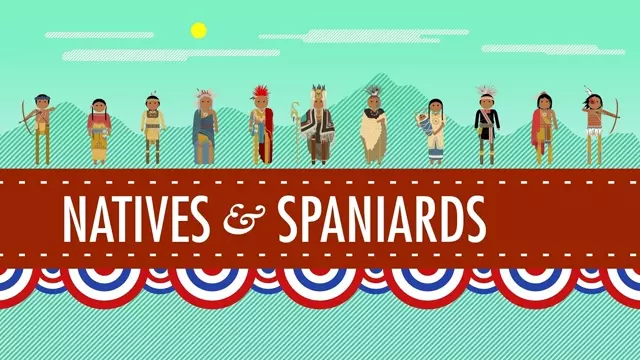2013-01-31
[public] 8.85M views, 79.6K likes, 3.49K dislikes audio only
In which John Green kicks off Crash Course US History! Why, you may ask, are we covering US History, and not more World History, or the history of some other country, or the very specific history of your home region? Well, the reasons are many. But, like it or not, the United States has probably meddled in your country to some degree in the last 236 years or so, and that means US History is relevant all over the world. In episode 1, John talks about the Native Americans who lived in what is now the US prior to European contact. This is a history class, not archaeology, so we're mainly going to cover written history. That means we start with the first sustained European settlement in North America, and that means the Spanish. The Spanish have a long history with the natives of the Americas, and not all of it was positive. The Spanish were definitely not peaceful colonizers, but what colonizers are peaceful? Colonization pretty much always results in an antagonistic relationship with the locals. John teaches you about early Spanish explorers, settlements, and what happened when they didn't get along with the indigenous people. The story of their rocky relations has been called the Black Legend. Which is not a positive legend.
Chapters:
Introduction to Crash Course US History 00:00
Native North Americans 0:45
Were Native North Americans 'Primitive?' 1:08
Native North American Populations 1:52
Life in Pre-Columbian America 3:06
Class and Society in Native American Tribes 4:25
Spanish Colonization in North America 5:32
Mystery Document 7:58
The Problem with the Black Legend 9:31
Credits 10:46
Crash Course is on Patreon! You can support us directly by signing up at http://www.patreon.com/crashcourse
Want to find Crash Course elsewhere on the internet?
Facebook - http://www.facebook.com/YouTubeCrashCourse
Twitter - http://www.twitter.com/TheCrashCourse
Instagram - https://www.instagram.com/thecrashcourse/
CC Kids: http://www.youtube.com/crashcoursekids
https://www.patreon.com/crashcourse
youtube.com/watch?v=aTsqMTnYOHo
youtube.com/watch?v=NJPihBZ0r6s
https://www.patreon.com/crashcourse
/youtube/video/6E9WU9TGrec?t=0
/youtube/video/6E9WU9TGrec?t=45
/youtube/video/6E9WU9TGrec?t=68
/youtube/video/6E9WU9TGrec?t=112
/youtube/video/6E9WU9TGrec?t=186
/youtube/video/6E9WU9TGrec?t=265
/youtube/video/6E9WU9TGrec?t=332
/youtube/video/6E9WU9TGrec?t=478
/youtube/video/6E9WU9TGrec?t=571
/youtube/video/6E9WU9TGrec?t=646

